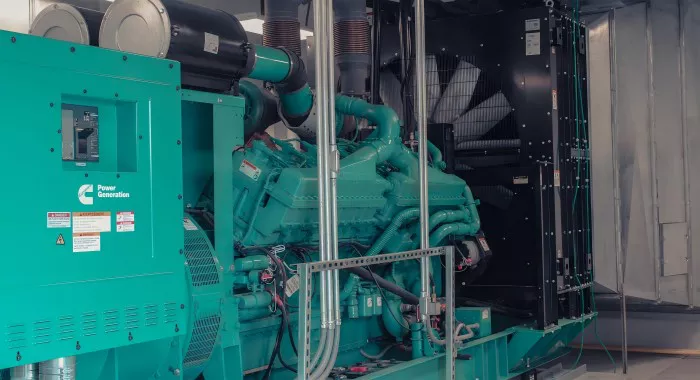Understanding diesel fuel requirements for a diesel generator is vital for efficient operation and cost management. This guide explores how much diesel fuel is needed to charge a diesel generator, including factors influencing fuel consumption and practical tips for managing fuel usage.
1. Factors Affecting Diesel Fuel Consumption
1.1 Generator Size and Capacity
The size and capacity of a diesel generator have a significant impact on its fuel consumption. Larger generators with higher power outputs consume more fuel compared to smaller units. Generators are typically rated in kilowatts (kW) or megawatts (MW), and their fuel consumption is usually specified in liters per hour (L/h) or gallons per hour (GPH) at full load. For instance, a 50 kW generator might consume approximately 15-20 liters of diesel fuel per hour at full load, while a 200 kW generator could consume 60-80 liters per hour.
1.2 Load Demand
The load demand placed on a generator directly affects its fuel consumption. A generator running at full load will use more fuel than one running at a partial load. It is essential to consider the load factor when estimating fuel requirements. Operating a generator at 50% load will result in lower fuel consumption compared to running it at full load. For example, if a generator’s full-load fuel consumption rate is 10 liters per hour, it might consume around 5-6 liters per hour at 50% load.
1.3 Fuel Efficiency
Fuel efficiency, also known as specific fuel consumption (SFC), measures how much fuel is used to generate a specific amount of power. Diesel generators with higher fuel efficiency consume less fuel to produce the same amount of power. Fuel efficiency is typically expressed in liters per kilowatt-hour (L/kWh) or gallons per kilowatt-hour (G/kWh). For example, a generator with a fuel efficiency of 0.2 L/kWh means it consumes 0.2 liters of fuel to produce 1 kilowatt-hour of electricity. Generators with better fuel efficiency can result in significant cost savings over time.
1.4 Operating Conditions
Operating conditions such as ambient temperature and altitude can also affect fuel consumption. Generators may experience changes in fuel efficiency under extreme temperatures or high altitudes. For instance, at higher altitudes, the air density is lower, which can affect combustion efficiency and potentially increase fuel consumption. Similarly, extremely high or low temperatures can impact engine performance and fuel efficiency. Understanding how these factors influence fuel usage is crucial for accurate planning and operation.
2. Calculating Diesel Fuel Requirements
2.1 Determine the Generator’s Fuel Consumption Rate
To estimate how much diesel fuel is needed, first identify the generator’s fuel consumption rate. This information is typically provided by the manufacturer and indicates the amount of fuel consumed per hour of operation at full load. For example, if a generator consumes 12 liters per hour at full load, this rate will be used for calculations.
2.2 Estimate the Operation Time
Determine the total operating time required. For instance, if the generator is needed to run for 10 hours, this duration will be used to calculate the total fuel requirement. Accurate estimation of operation time helps in planning fuel purchases and storage.
2.3 Calculate the Total Fuel Requirement
Use the following formula to calculate the total amount of diesel fuel required:
Total Fuel Requirement (liters) = Fuel Consumption Rate (L/h) × Operating Time (hours)
For example, if a generator consumes 12 liters per hour and needs to operate for 10 hours, the total fuel requirement would be:
Total Fuel Requirement = 12 L/h × 10 hours = 120 liters
2.4 Adjust for Load and Efficiency
If the generator will not be running at full load, adjust the fuel consumption rate based on the expected load factor. Generators typically have different fuel consumption rates at partial loads. Additionally, consider the fuel efficiency of the generator when performing these calculations. For example, if the generator is expected to run at 75% load, and the fuel consumption rate at full load is 12 liters per hour, it might be adjusted to around 9 liters per hour (75% of 12 liters).
see also: What Size Diesel Generator Do I Need?
3. Practical Tips for Managing Diesel Fuel Usage
3.1 Regular Maintenance
Perform regular maintenance on the diesel generator to ensure optimal performance and fuel efficiency. Regular servicing helps prevent issues that can lead to increased fuel consumption. Maintenance tasks include checking and replacing filters, inspecting the fuel system, and ensuring proper engine lubrication.
3.2 Monitor Fuel Levels
Keep track of fuel levels to avoid running out during operation. Use fuel gauges and monitoring systems to maintain an adequate supply of diesel fuel. Implementing a regular fuel monitoring routine helps prevent disruptions and ensures continuous operation.
3.3 Optimize Load Management
Operate the generator at optimal load levels to improve fuel efficiency. Avoid running the generator at excessively low or high loads, as this can impact fuel consumption and overall performance. Load management practices, such as scheduling operations during peak hours or using load management systems, can help achieve optimal efficiency.
3.4 Store Fuel Properly
Ensure that diesel fuel is stored correctly to prevent contamination and spoilage. Use proper storage containers and maintain good practices for handling and storing diesel fuel. Fuel should be stored in a cool, dry place, away from direct sunlight and sources of contamination.
Conclusion
Calculating the diesel fuel required for a diesel generator involves considering factors such as generator size, load demand, fuel efficiency, and operating conditions. By understanding these factors and performing accurate calculations, you can effectively manage fuel usage and ensure the efficient operation of your diesel generator. Regular maintenance, monitoring fuel levels, optimizing load management, and proper fuel storage are essential practices for maintaining fuel efficiency and reducing operational costs. Effective fuel management not only ensures reliable power supply but also contributes to the long-term sustainability and cost-effectiveness of diesel generator operations.
Related topics:
- Top 4 Portable Diesel Generator
- How to Operate Diesel Generator?
- Why Diesel Is the Preferred Fuel for Generators?

